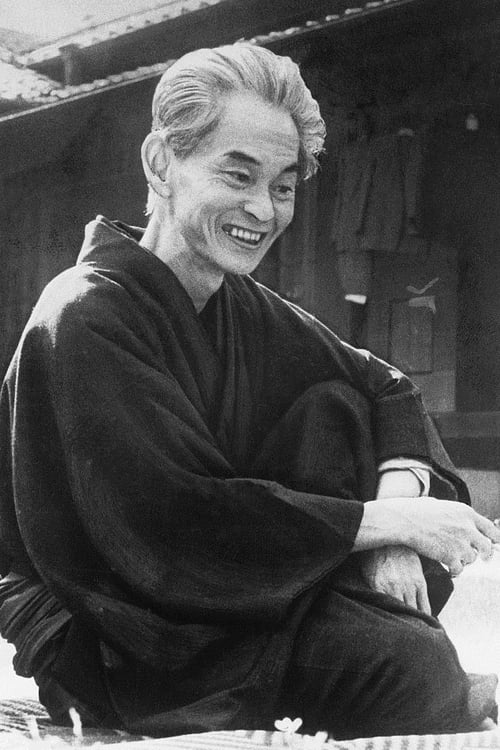Yasunari Kawabata
Nacimiento : 1899-06-14, Osaka City, Osaka Prefecture, Japan
Muerte : 1972-04-16
Historia
Yasunari Kawabata was a Japanese novelist and short story writer whose spare, lyrical, subtly-shaded prose works won him the Nobel Prize for Literature in 1968, the first Japanese author to receive the award.
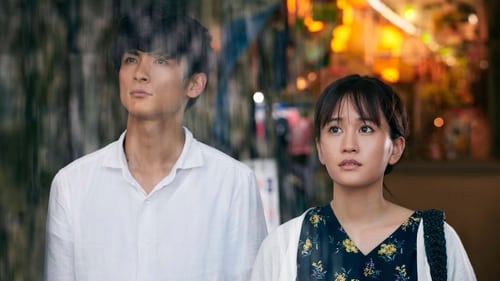
Novel
Alumni of Ibaraki High School learn that one of their classmates is killed in an accident on the tenth anniversary of their graduation, necessitating an unexpected reunion and “on-campus funeral”. They spend a strange night together, during which the secrets of his life are revealed and they rededicate themselves to his memory, with a new outlook on life.
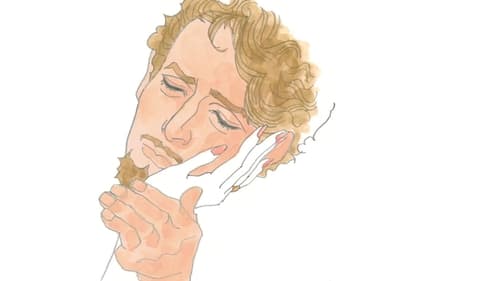
Novel
A woman lends an admirer her arm for the course of one night for him to find pleasure with it... An eerie erotic short story by Nobel Prize laureat Kawabata Yasunari is turned into minimalist animation of dazzling beauty indebted to Alfons Maria Mucha. A true gem created by two anime giants.

Novel
Chieko Sanda has operated a dry goods store in Kyoto for the past 20 years. Her family has owned the store for generations. Chieko is conflicted on whether her daughter Mai will take over her position with the changing of times. Mai is a college student and has not decided whether to take another job or take over the dry goods store. Meanwhile, Mitsuko Nakata runs a forestry in the outskirts of Kyoto. Mitsuko is Chieko Sanda’s twin sister, but they were separated at an early age. Mitsuko is in serious financial difficulties. Mituko's daughter, Yui, has talent in art and she goes to France. There, Yui feels a sense of powerlessness. Mitsuko notices and goes to Paris to see her daughter. Mai travels to Paris to take part in an event to show Japanese culture.

Original Story
Four short films based on ghost stories written by award winning modern Japanese writers.

Story
A university professor decides to go for a tour in Akihabara, guided by a young woman dressed up like a French maid. As they both walk through the streets of modern Tokyo, the man and the young woman gradually speak of a past they both share, and ultimately a painful love triangle that continues to haunt them. A poetic rumination in love, memories and loss told almost entirely with split screens.

Story
At an isolated fishing village of Malaysia, a woman’s relationship with her young daughter descends into a path of self-destruction and abuse when she begins to receive a series of strange and mysterious letters from her long-absent husband.

Writer
A man gets one arm of a woman who he fell in love, just one night. After that a man has a tragic nightmare because of one arm. The background of this story is 1960's in Japan. It was the last period that Japonism and specific moral had remained in ordinary people and their life after world war II.

Story
Based on four early novellas by Noble Prize winner Yasunari Kawabata, this omnibus of four short films are by emerging directors from the second graduating class of the new Graduate School of Film and New Media at Japan’s top art school, Tokyo National University of Fine Arts and Music (Tokyo Geidai), where famed directors Takeshi Kitano and Kiyoshi Kurosawa teach.

Novel
Un hombre mayor, el Sr. Eguchi encuentra accidentalmente un hotel especial para caballeros que se llama "Casa de las bellezas dormidas" junto al mar. Cuando un huésped reserva una habitación, puede dormir con una niña que está muerta por la medicina. Pero la casa tiene las reglas estrictas y una casera controla todo. El Sr. Eguchi se enamora de un amor imposible con una niña dormida y el amor le recuerda su vida. El trasfondo de esta historia es la década de 1960 en Japón. Fue el último período en que el japonismo y la moral específica permanecieron en la gente común y en su vida después de la Segunda Guerra Mundial.

Novel
A Edmond, un hombre de unos sesenta años cuya esposa falleció recientemente, se le cuenta acerca de un establecimiento secreto donde los hombres pueden pasar toda la noche en la cama junto a mujeres hermosas y dormidas, que se estiran, giran y sueñan, pero nunca despiertan. Deslumbrado por su seductora pero inocente ternura, pero angustiado por la razón de su profundo sueño, se adentra en el misterio de la casa de las bellezas dormidas.

Novel
Set in the traditional city of Kyoto, Japan, this deeply poetic TV movie revolves around Chieko who becomes bewildered and troubled as she discovers the true facets of her past. With the harmony and time-honored customs of a Japanese backdrop, the story becomes poignant as Chieko’s longing and confusion develops.

Writer
Shinshun! Love stories (新春! LOVEストーリーズ) is a 2002 Japanese telefilm starring members of the all-girl J-pop group Morning Musume. Shinshun! Love stories is an anthology film based on three different romantic stories: The Dancing Girl of Izu, Haikara-san ga Tōru and Toki o Kakeru Shōjo. The film aired on Tokyo Broadcasting System on January 2, 2002. A limited edition DVD was released on October 26, 2005.

Novel
Lawrence, prestigioso escritor, llega a Santiago a pasar un curso de invierno. Allí, por medio de su colega Elías, descubre una casa muy especial a las afueras de la ciudad, regentada por una mujer hermética y misteriosa, Salomé. En esta casa hombres maduros, ancianos, pasan la noche junto a jóvenes dormidas, buscando recuperar a su lado la juventud perdida.

Novel
Sobre un establecimiento donde los ancianos pagan para dormir, además de las jóvenes que habían sido narcotizadas y que estaban desnudas, las bellezas dormidas. Se espera que los ancianos tomen pastillas para dormir y compartan la cama durante toda la noche con una chica sin intentar nada de mal gusto, como meterse un dedo en la boca.

Self
A BBC television documentary on the life of Yukio Mishima that highlights the many known major aspects of his life and personality.

Novel
Hugo sólo ha escrito una novela, pero ha tenido mucho éxito. En ella describe su relación con una mujer que se ha convertido en una escultora famosa. Falto de inspiración, decide volver a verla, pero ella le rechaza
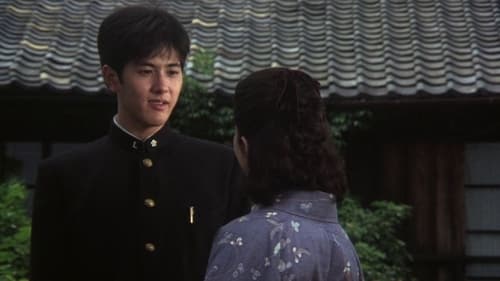
Writer
Chieko (Momoe Yamaguchi) has been raised as the only child of parents who run a dry goods store. When Chieko was a middle-school student, she learned that her parents are not her biological parents. Cheiko's mother told her that she was stolen while sleeping under a cherry tree in Gion, Kyoto, Japan, but Chieko doesn't believe that. Her relationship with her parents is very close. Chieko only tells her childhood friend Shinichi, but...
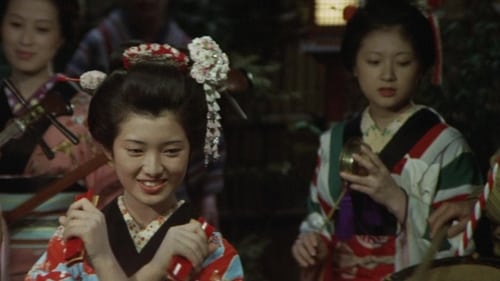
Writer
While vacationing in the Izu peninsula, a high school student Kawashima becomes intrigued by Kaoru, a pretty young dancer in a troupe of travelling performers, and he tags along with them on their journeys.
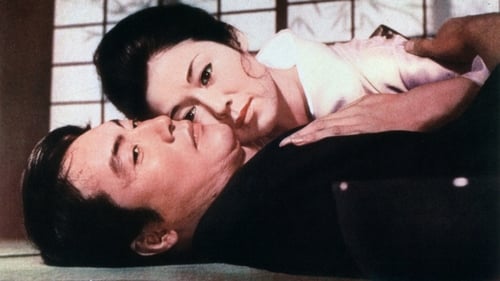
Novel
The entangled relations between the son of a seductive tea-ceremony teacher and the women in his father's life.
Based on the novel by Kawabata Yasunari.

The day after Yasunari Kawabata won the Nobel Prize in Literature, a talk was held at Kawabata's residence in Kamakura. Yukio Mishima, who admires Kawabata, and Sei Ito, a literary critic, celebrate the first honor of the Japanese people, and this is a valuable opportunity for the three to meet and talk.

Story
Sobre un establecimiento donde los ancianos pagan para dormir, además de las jóvenes que habían sido narcotizadas y que estaban desnudas, las bellezas dormidas. Se espera que los ancianos tomen pastillas para dormir y compartan la cama durante toda la noche con una chica sin intentar nada de mal gusto, como meterse un dedo en la boca.
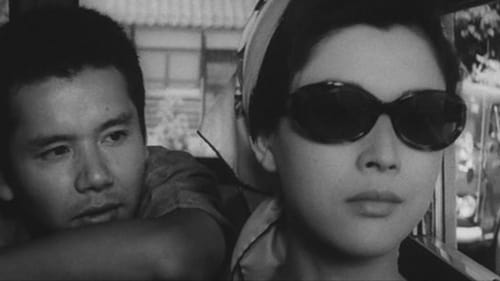
Novel
Una mujer casada deja a su amante hacerle fotos de desnudos. Las fotos terminan en manos de un hombre que empieza a chantajear a la pareja.

Original Story
This movie is based on an immortal literary work "The Snow Country," a story about a life of geisha Komako who lives in a region with heavy snowfalls.

Novel
Tiempo atras, Ôki, que está entrando en la mediana edad, tuvo una aventura con Otoko, una chica de 16 años. Se quedó embarazada, pero el niño murió al nacer, y la relación se detuvo en ese instante. Tiempo después, Ôki se convirtió en un famoso escritor, debido a una novela sobre esta historia de amor. Otoko, por su parte, se hizo famosa como pintora. Pero nunca olvidó el doble trauma y se hizo lesbiana. Su estudiante favorita y amada es la bella Keiko. Veinticuatro años después de su historia de amor, Ôki viaja de Tokyo a Kyoto para encontrarse con Otoko. La reunión es educada, escondiendo las sombras emocionales. Keiko tiene un plan: seducir a Ôki, quedarse embarazada, tener el bebé y dárselo a Otoko.

Novel
In this Japanese drama, a dry goods merchant's daughter is surprised to discover that she has a twin sister. In rural Japan it was thought that twins bring bad luck, so the sister was abandoned at birth. Later her parents tell her that her sister was kidnapped. The woman doesn't believe this and when she eventually meets her twin, both women are involved in love affairs. The merchant's daughter is seeing an educated fellow. Trouble ensues when she begins suspecting that he may be more interested in her sister.

Original Story
Love story between a student and girl whose parents are itinerant entertainers. Set in Japan in the 1920's.

Novel

Screenplay
Story of a family torn apart when Teiji (Mori), the father, develops intimate feelings for a runaway (Kuga) the family has taken into their home.

Original Story
Story of a family torn apart when Teiji (Mori), the father, develops intimate feelings for a runaway (Kuga) the family has taken into their home.

Original Story
It's a man's world. Shimamura, an artist, comes to this snowbound town to rejuvenate himself. He connects with Komako, a geisha he met on a previous trip, and it seems like love. She's the foster daughter of a local family, almost engaged to the family's son Yukio, now dying of consumption. He's tended by his sister Yuko who's angry at Komako for abandoning her brother. Shimamura returns to Tokyo but promises he will be back soon. In anticipation of his return, Komako breaks with her patron and her family loses their home. Complications arise when Shimamura doesn't come back as promised. Then Komako discovers that he and Yuko knew each other in Tokyo. Can Komako escape destiny?

Original Story
Japanese drama film, originally released in two parts.

Story
An adaptation of the Kawabata Yasunari short story.
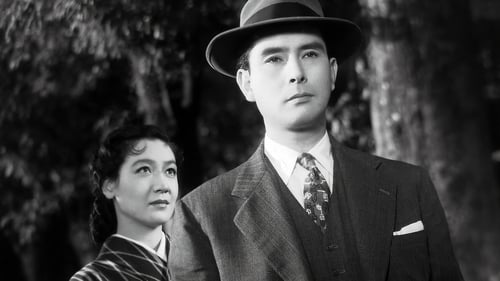
Novel
Shuichi, hijo de Shingo, un próspero hombre de negocios de Tokio, vive con sus padres y su esposa Kikuki en una confortable casa. Por las tardes, se queda a menudo en la capital, bebiendo y divirtiéndose con su querida. Kikuko aguarda pacientemente su regreso a altas horas de la noche. Shingo, hombre sabio y de talante moderno, es consciente de los desenfrenos de su hijo y compadece a la solitaria Kikuko. (FILMAFFINITY)

Novel
Kazuo Miyagawa’s prizewinning black-and-white cinematography draws out the moral shadings of Nobel laureate Yasunari Kawabata’s 1952 novel Thousand Cranes, a quietly devastating story of a young man, orphaned during the war, who stumbles into a passionate yet tragic relationship with his late father’s mistress and her daughter.

Novel

Original Story
The troubled relationship between a writer and his ballet teacher wife, who has for years loved another man, finally leads to the breakup of the family.

Novel
Un carismático conductor de autobús es apodado "Arigatô-san (Sr. Gracias)" debido a las constantes palabras de agradecimiento que dirige a los peatones que le dejan paso en el camino. En uno de sus viajes desde el pueblo de Izu hasta la ciudad de Tokyo llevará en su autobús, entre otros variopintos personajes, a una madre que se ha visto obligada por la penuria económica a mandar a su hija a trabajar en un burdel.

Story
Three sisters earn money for their bossy mother by being samisen street musicians. This means mainly playing a banjo type instrument for tips in bars...

Author
"The Dancing Girl of Izu" tells of the story between a young male student who is touring the Izu Peninsula and a family of traveling dancers he meets there, including their youngest girl. The student finds the naïve girl attractive even though he eventually has to part with the family after spending memorable time together.

Writer
Describes the decadent allure of the entertainment district, Tokyo's Montmartre, where beggars and teenage prostitutes mixed with revue dancers and famous authors.
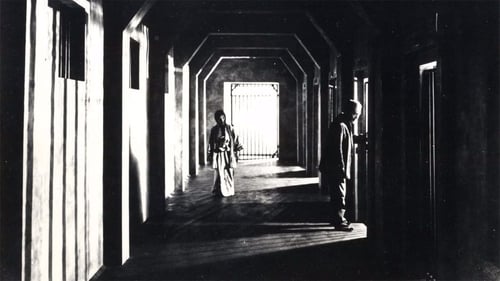
Writer
Un marinero se emplea como ordenanza en un manicomio para liberar a su esposa, que se encuentra recluida luego de que intentara suicidarse y matar a su bebé. Esta es una restauración de la copia hecha por el mismo Kinugasa en la década del 70. Kinugasa redescubrió su copia personal, supuestamente en un cobertizo de su jardín y escondida en una maceta. Para prepararla para un nuevo lanzamiento, quitó algunas de las escenas más convencionales, así como eliminó todos los intertítulos, sin duda para hacer la película aún más "avant-garde" de lo que había sido. No hay constancia de que exista una versión original.

Original Story
Un marinero se emplea como ordenanza en un manicomio para liberar a su esposa, que se encuentra recluida luego de que intentara suicidarse y matar a su bebé. Esta es una restauración de la copia hecha por el mismo Kinugasa en la década del 70. Kinugasa redescubrió su copia personal, supuestamente en un cobertizo de su jardín y escondida en una maceta. Para prepararla para un nuevo lanzamiento, quitó algunas de las escenas más convencionales, así como eliminó todos los intertítulos, sin duda para hacer la película aún más "avant-garde" de lo que había sido. No hay constancia de que exista una versión original.
